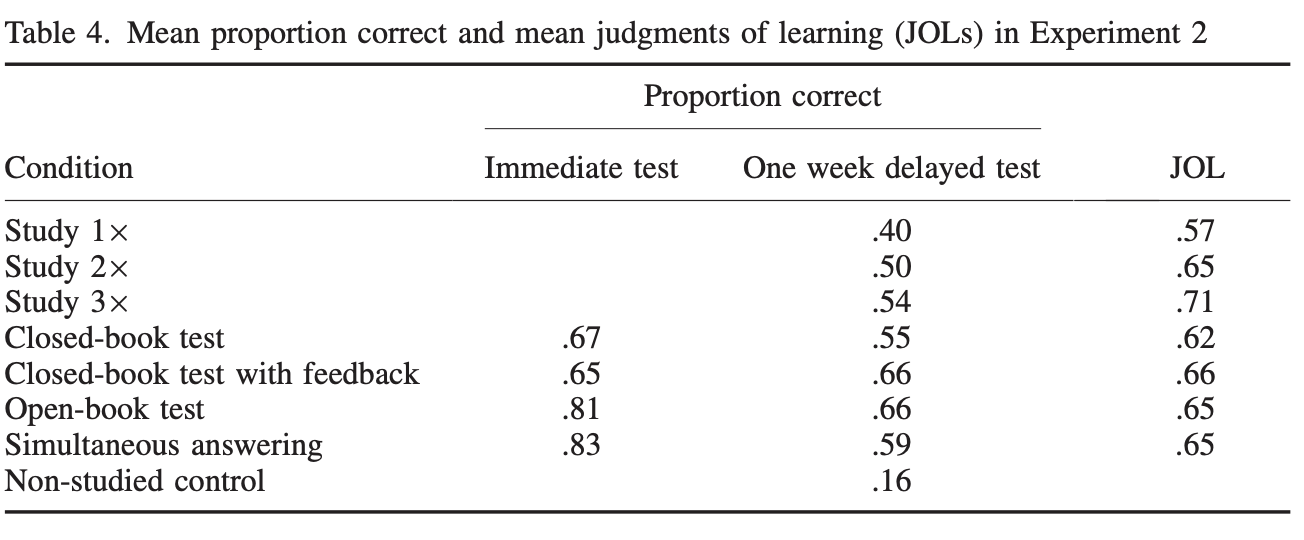Andyʼs working notes
About these notesAgarwal, P. K., Karpicke, J. D., Kang, S. H. K., Roediger, H. L., & McDermott, K. B. (2008). Examining the testing effect with open- and closed-book tests. Applied Cognitive Psychology, 22(7), 861–876
In two small-scale experiments on undergrads, open-book testing and closed-book testing (with feedback) achieve the same (substantial) Testing effect on a test delayed one-week, relative to re-studying. This suggests that Retrieval practice interventions can possibly be made open-book without meaningful loss in efficacy.
The authors include a “simultaneous answering” condition in which a student is immediately given the questions to be answered, alongside the text, without first completing an initial read. This sort of simulates a “mercenary” student who speed-runs an assignment by using the questions to guide the reading. This condition performed better on the delayed test than the re-studying control conditions, but substantially less well than the open-book test. The questions on the delayed test were identical to those used during the initial read; presumably the non-simultaneous advantage would be even larger for non-identical questions.

Q. Main finding?
A. Open-book retrieval practice yields better performance on an immediate test than closed-book retrieval practice, but the advantage disappears in a delayed test (so long as feedback was given).
Note that Roelle, J., & Berthold, K. (2017). Effects of incorporating retrieval into learning tasks: The complexity of the tasks matters. Learning and Instruction, 49, 142–156 continues this inquiry and finds an important interaction between adjunct question complexity and open/closed-book.